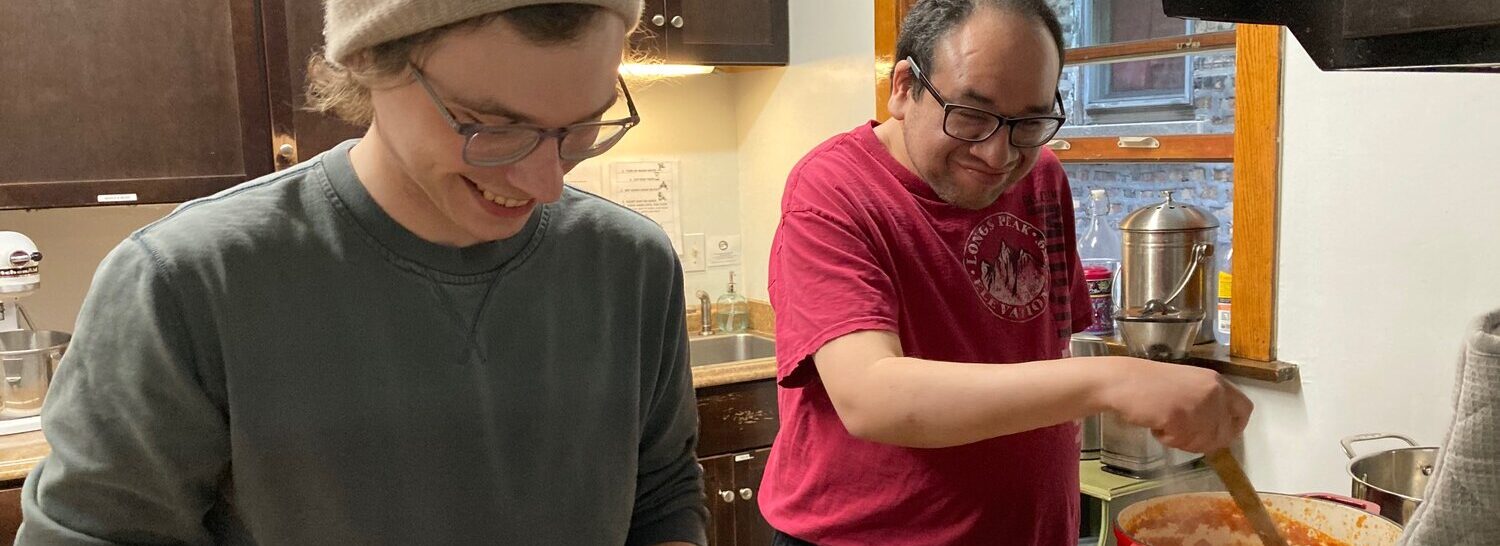At Angel House, my food-related responsibilities incorporate weekly menu writing, preparing shopping lists, and three nights a week assisting core members in preparing the dishes they’ve chosen. This is one of the most rewarding dimensions of my role, but this is partly due to its distinct challenges.
Food, after all, really seems to be the temporal anchor of human beings. Not only must we eat, but we often do it frequently such that we quietly mark the minutes of each day. For me, it is the border of the morning, the transition to the afternoon, and the first part of the evening. Carrying the theme of time, food holds for us the memory of our upbringing. What we ate as children continues to be alive in us as the model to which our current tastes will always somewhat conform. Desire for food, the rhythmic need for it, the way a dish can “taste like home” for all those who partake, these together create an intensely dear and consistently reappearing potential moment for being together.
So, it is of no surprise that food can (and does) all go quite wrong. Because of how near taste is to our sense of self, and thus to our sense of safety and belonging, the wrong dish, the wrong preparation, or something unfamiliar so easily produces offense. Without even factoring in errors like overcooking, burning, split sauces, under-spicing, it is so easy to trigger disgust. At Angel House, everything from marinara to black beans stands cause for controversy. There have been many nights when I’ve cooked only to discover the dish was well off the center of the Venn diagram of everyone’s culinary imagination. At times this belongs to the inherent push and pull of our differences or the accidents of ingredient availability, but at others I want to insist that my taste is the right one.
The dispute over what to eat and how to eat transitions quite easily into a proxy for whether we feel seen and respected. I’m regularly tempted to nurse the self-protective dream that the ingredients that get me going might just this time really energize the folks I dwell with. Instead, it is for me to reach outside my self-interests and change the focus and expectation of my efforts. Over the last seven months at L’Arche, I’ve come to find that the whole space of cooking and eating together is sustained—to my surprise—by seeing food as a way of acknowledging each other in our differences. In fact, there’s tremendous breadth for play and for holding each other in high esteem by thinking twice about incorporating mace or sumac, in focusing less on “wok-hei” (heat intensity) than working together.
For me, it has been disorienting to view cooking outside of an activity that measures my technical skills or the testing ground of what’s gastronomically possible. It has taken all these months but I’m beginning to laugh at myself for carting a Damascus steel cleaver into work every day. There are no Michelin stars to be earned. People just want to be together, to eat together, for it to go alright.
And often, in spite of me, it does.

